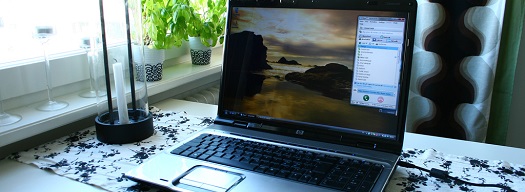Not getting enough sleep? Turn off your phone – and your laptop, tablet and TV.
By Sachin Shanikolar
A study by the National Sleep Foundation found that 95 percent of Americans use some type of artificial-light-producing gadget in the hour before going to bed, and 63 percent reported that they don’t feel they’re getting enough sleep. Yes, those two responses are connected. Real Business asked Dr. John Peachey of Stanford University’s Sleep Medicine Center, and other sleep medicine experts, for advice on how to see the light and still get your Zs.
 Set Your Internal Clock: Don’t keep your phone within reach while you’re sleeping. Invest in a separate alarm clock to avoid the urge to check the time (and email) on your phone in the middle of the night.
Set Your Internal Clock: Don’t keep your phone within reach while you’re sleeping. Invest in a separate alarm clock to avoid the urge to check the time (and email) on your phone in the middle of the night.
Flip the Switch: Dr. Michelle Primeau, also from Stanford, recommends turning off electronic devices one hour before going to bed. “Allow wind-down time,” she says. “If you are busy, hectic, and stressed all day, that is what you will take with you to bed. Focus on activities that are restful, relaxing, enjoyable, and not goal-directed.”
Examples of soothing activities include listening to music or taking a warm bath.
Get in Bed Only When You’re Sleepy: If you have trouble falling asleep, get out of bed and do a relaxing activity such as reading a book. “Sleep is a process of letting go,” says Peachey. “One of the worst methods for falling sleep is to try hard to sleep. If you are sleepy or asleep, you should be in bed. If you feel alert or are awake, you should get out of bed. This strategy should help to re-train your brain to associate the bed with sleep.”
(This was excerpted from an article that was first published in Real Business, a website from Xerox that provides ideas and information for decision makers in business and government.)



